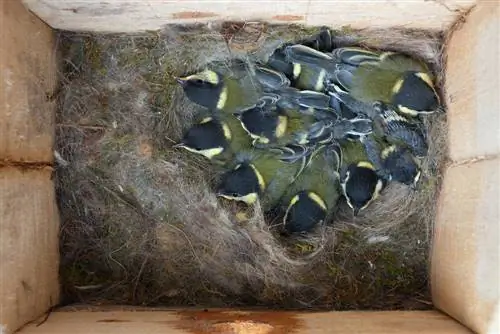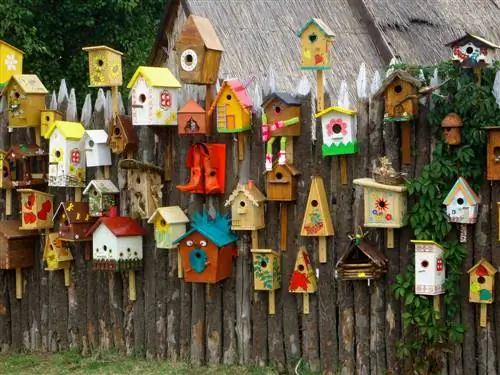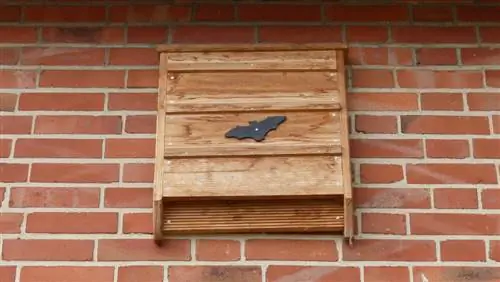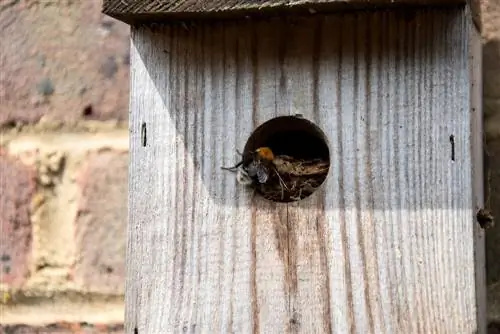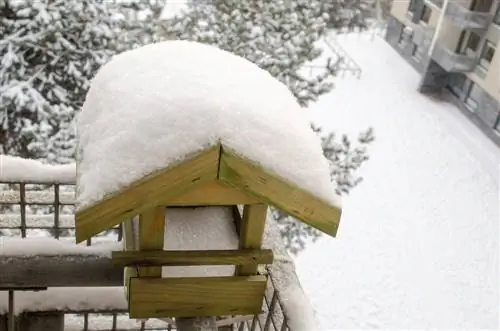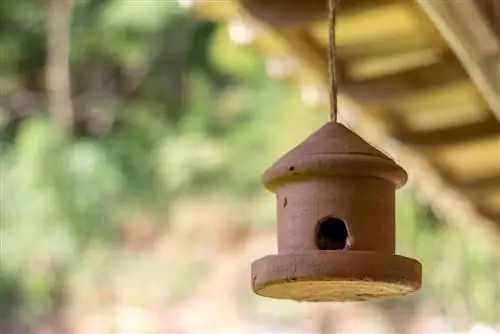- Author admin leonars@hobbygardeners.com.
- Public 2024-01-10 23:11.
- Last modified 2025-01-23 11:21.
Actually, a nesting box is a place where a bird's life begins. There is actually no plan for an early death here. Nevertheless, it happens every now and then that bird lovers discover dead tit chicks while cleaning the nesting box. You can find out what reasons death can have and how you can prevent it on this page.
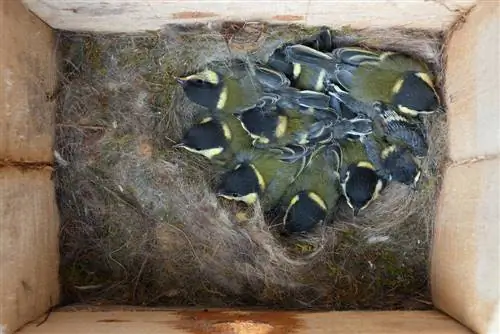
Why do tits die in the nesting box and how can you prevent it?
Dead tits in the nest box can die from starvation if the food supply is too low or the parents die, or from poisoning and viruses brought in by migratory birds. Preventative measures include offering sufficient food and regularly cleaning the nesting box.
Dead tits in the nesting box - a reason for concern?
Death is just a part of life. Likewise, natural selection prevails in nature. Accordingly, it is not surprising that a brood of birds that is too weak does not survive the first few years. If you find dead tits when emptying the nesting box in summer, it's a shame, but it shouldn't cause you a headache. It is different if the entire clutch is dead in the nest. Then one of the following grievances could be to blame.
Possible causes
- Starving
- Poisoning or virus
Prevention
Starving
There are two possible reasons for a food shortage:
- too little food supply
- Death of parents
Tits feed mainly on insects. If there is bad weather over a long period of time or particularly icy temperatures in winter, the population decreases enormously. Provide the tits with enough food in the form of suet balls (€19.00 on Amazon) or a food bowl. Unfortunately, you are powerless against the death of your parents. Not only because you often don't notice it, but also because it is hardly possible to raise young tits by hand.
Poisoning or viruses
Migratory birds from the south often bring diseases with them. If these get into the nesting box, the young birds in particular quickly become ill because they have not yet developed sufficient defenses. You should therefore thoroughly clean your nesting box twice a year and remove the residue from abandoned nests. They provide an optimal breeding ground for parasites. You should also impregnate the nesting box to prevent mold from forming due to moisture. However, only use environmentally friendly paints, as toxic substances can also lead to the death of a tit.

